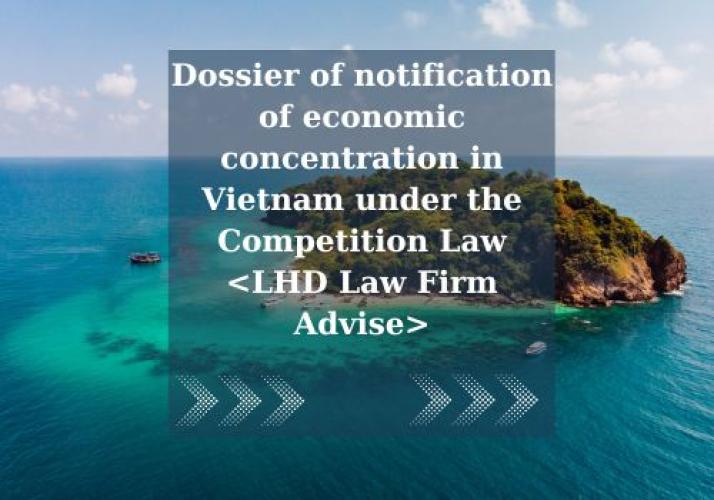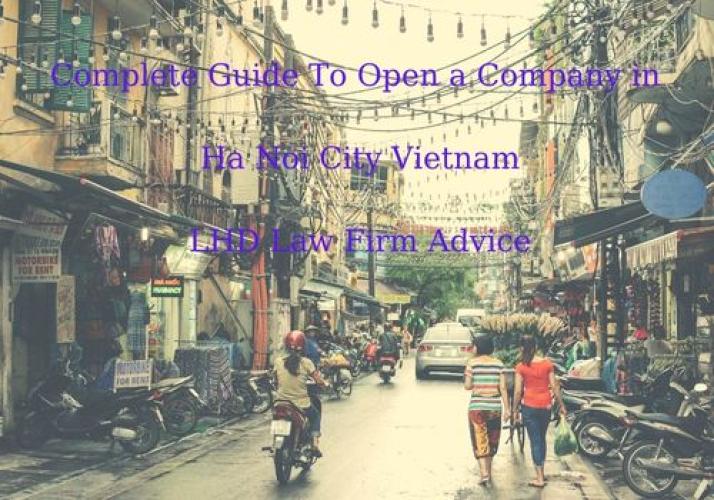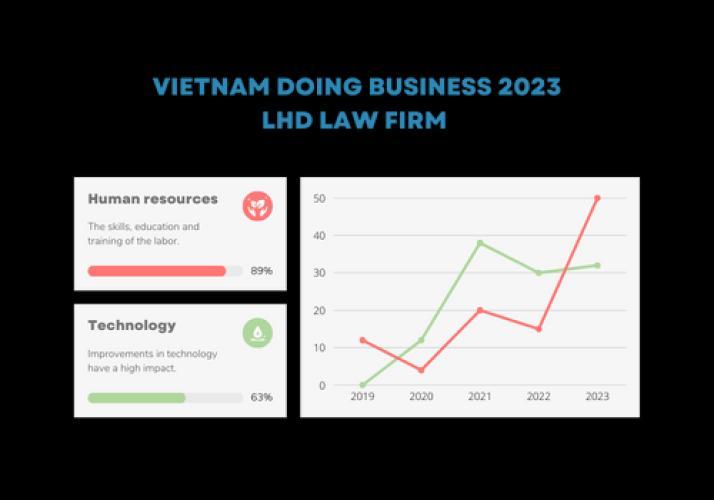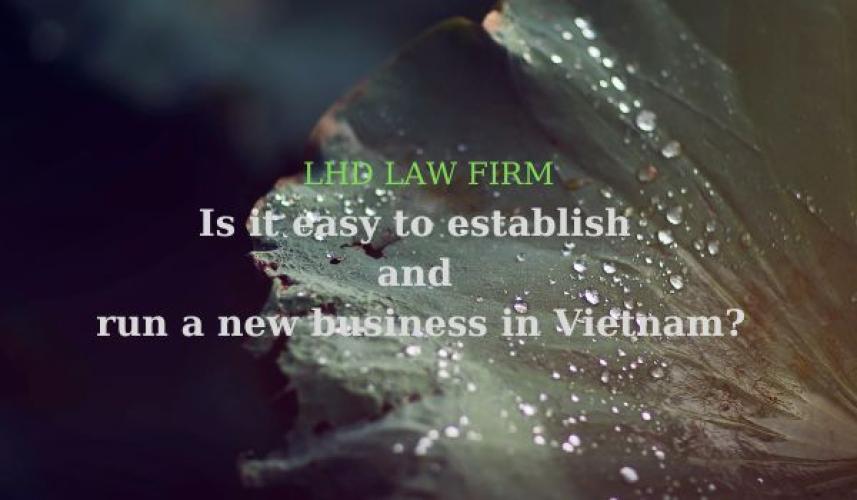Set Up Enterprise Registration Certificate Vietnam (Erc)
- 05/08/2022

 CONTENT
CONTENT
 CONTENT
CONTENT
Vehicles of Foreign Direct Investment
Under the ULE and CLI, foreign investors are entitled to select one of the following vehicles or forms for their investment in Vietnam: Vietnam company formation:
- Business Co-operation Contract ("BCC");
- Limited Liability Company, with One or More Members ("LLC");
- Joint Stock Company ("JSC");
- BOT,
- BTO; and
- BT
- Enterprise registration certificate Vietnam “ERC”
- Investment Registration Certificate “IRC”
It is worthy of note that for any new establishment of LLC or JSC, it is required to attached the establishment to an investment project. In this case, an investment registration certificate shall be issued to the newly established LLC or JSC, which serve at the same time as the business registration certificate of the LLC or JSC.
BCC
BCC is a partnership signed by two or more parties with the objective of conducting jointly one or more business operations in Vietnam on the basis of mutual allocation or responsibilities and sharing of profits or losses, without creating or forming a legal entity in Vietnam.
As BCC is not a separate legal entity, the contractual rights and obligations of the parties must be shared. To co-ordinate the daily operation of a BCC, a co-ordination board can be set up when necessary, with presence of the equal nominees from the parties. Vietnam company formation
LLC
LLC is established by a single investor or pursuant to a joint venture contract signed by one or more investors, either Vietnamese investors and one or more foreign investors; or between foreign investors, individually or institutionally, for the purpose of carrying out business activities in Vietnam. The difference of the LLC compared with the JSC is that the LLC is not permitted to issue shares, and the number of investors, regardless individual or institutional, is not allowed to be excessive of 50. Vietnam company formation JSC
JSC is a company established by at least 3 investors, regardless individual or institutional, local or foreign. Differing from the LLC, JSC can issue shares to the publics. JSC is a kind of limited liability Company, and has the legal person status in accordance with the laws of Vietnam. Vietnam company formation
BOT, BTO and BT
Compared to the said vehicles, regulations covering BOT, BTO and BT are quite few, causing difficulties for implementing.
A written contract which must be signed by foreign investor(s) and an authorized agency constitutes the principal legal basis for implementing a BOT, BTO or BT project. It differs from BOT to BTO in the right to commercial exploitation of the completed project for getting back investments. This right is realized for a fixed time before transferring to the State of Vietnam in the case of BOT, but in the case of BTO, it follows after transferring. As for BT, foreign investor(s) must hand over the project to the State of Vietnam upon its completion, and instead of commercial exploitation like the case of BOT and BTO, foreign investor(s) is/are provided with opportunities to carry out other projects to get back investments. Vietnam company formation
In all and every case, a LLC or JSC can be established by foreign investor(s) to carry out the project, in accordance with applicable procedures as described hereof.
Project Classification and Licensing Agencies
Unlike the FIL, the projects under the CLI are classified into two groups, requesting the registration procedures and appraisal procedures. More decentralized, all projects (except BOT, BTO and BT projects to which MPI will issue the Investment certificates) are approved and licensed by city/province-level people's committees with respect to projects outside EPZs and IZs, and city/province-level administration boards of EPZs and IZs with respect to projects inside EPZs and IZs.
Application Document Requirement
An application/ registration file for submission to investment registration agencies, under the CLI, normally includes:
- Application for investment certificate;
- BCC or JV contract, as the case may be
- Charter of LLC or JSC, as the case may be
- Technical-economic explanation or feasibility study for a BCC, LLC or JSC;
- Statements certifying the legal status and financial capacity of investors; and
- Explanation on satisfaction of WTO's requirements.
Vietnamese language is lawfully required, but a widely-used foreign language may also be accompanied, for instance, English. In principle, the two languages have equal legal weight in determining the parties' intentions, but in case of discrepancies, the Vietnamese shall prevail.
Licensing Procedures and Timing
All the new establishment of LLCs, JSCs, BCCs, BOTs, BTOs and BTs (IRC, ERC) are required to get investment certificate. Vietnam company formation
With respect to projects subject to the investment appraisal procedures, the time limit for issuance of an investment registration certificate shall be normally within 30 days from its receipt of the satisfactory files, and in special cases the time can be extended but not exceeding 30 -120 working days.
New law in Viet Nam
Several new laws of paramount importance to investors, which were passed in 2014, will take effect in 2015. This briefing highlights the most important changes under one of these laws, the 2014 Law on Enterprises (“the New Law”). 2015 will be another historical milestone following the Doi Moi policy and implementation of Vietnam's WTO commitments. A separate briefing will discuss changes under the new Law on Investment.
Key issues
Change of business activities need not be registered to update the ERC as required under current law
Change of founding shareholders need not be registered to update the ERC
Lower quorum and voting thresholds for multi-member LLCs
One member LLC can reduce its charter capital
SOE now defined as being wholly owned by the State
Requirements for public disclosure of information by SOEs.
Simplification of license requirements
The New Law removes the scope of business activities of an enterprise and the list of founding shareholders of a joint stock company (“JSC”) from the enterprise registration certificate (“ERC”). If an enterprise changes its business activities, founding shareholders or foreign shareholders, it must “report” to the corporate registration authority to update its corporate registration records, but does not need to “register” for an update of its ERC as required under current laws.
Change of foreign shareholders under new Law on Investment
One should distinguish the above corporate procedural requirements from any possible investment procedural requirements under the new Law on Investment. Under the new Law on Investment, an acquisition of shares by a foreign investor must be registered if the target enterprise operates in a conditional business sector for foreign investors or if it results in foreign investors (and certain forms of semi-foreign-investors) owning in aggregate at least 51% of the shares in the target enterprise. Effectively, the two new laws substantially simplify the process of share acquisition by a foreign investor in cases where foreign equity in the target does not reach 51% and the target does not operate in a conditional business sector.
More than one legal representative permitted
The New Law allows a JSC or limited liability company (“LLC”) to have more than one legal representative and only one of them is required to reside in Vietnam. If a JSC has more than one legal representative, the chairman and the general director must both be legal representatives.
Lower quorum and voting thresholds
In multi-member LLCs: the quorum of the first convened members’ council meetings and voting threshold for circular resolutions is reduced to 65% of the charter capital from the current 75% requirement.
In JSCs: the quorum of the first convened general meeting of shareholders (“GMS”) and voting threshold for circular resolutions of shareholders is reduced to 51% of the voting shares from the current 65% and 75% requirement respectively. At a GMS, the voting threshold is reduced to 51% of the voting shares of attending shareholders from the current 65% for ordinary matters and to 65% of the voting shares from the current 75% for reserved matters.
New reporting duties regarding change of managers
A company is required to report to the relevant licensing authority within 5 days of a change of the information (i.e. name, identification information, nationality, contact address) about certain managers of the enterprises, including members of the board of management of a JSC, inspectors and general directors of a JSC or LLC.
Change of requirements on charter capital of LLC
Under the old Law on Enterprises, a one-member LLC is not permitted to reduce its charter capital. The New Law now permits a one-member LLC to reduce its charter capital in certain circumstances. Additionally, full payment of the registered charter capital of an LLC must be made within 90 days of the issuance of the ERC (in contrast to the 36 months’ period under the old Law on Enterprises) or the actually paid charter capital must be registered as adjusted charter capital.
Fewer restrictions on founding shareholders in JSC
The identities of founding shareholders are no longer recorded in the ERC so a change of founding shareholders need not be registered (but has to be “reported”). Furthermore, the restriction on transfer of shares by a founding shareholder to third parties during the first 3 years after the issuance of its ERC does not apply to:
additional shares acquired by a founding shareholder after incorporation of the JSC, or
shares acquired by a third party from a founding shareholder.
Simplified procedure for JSC to issue new shares
In a private placement of shares, a non-public JSC must file a notification to the corporate registration authority but may proceed with the private placement if 5 business days have lapsed from the filing and the corporate registration authority does not issue an objection.
In the issue of shares proportionally to existing shareholders, if the offered shares are not fully subscribed, the JSC may issue the remaining shares to shareholders or third parties acting reasonably and on terms not more favorable than those applicable to the shareholders, except where otherwise approved by the GMS.
State-owned Enterprises (“SOE”)
New definition
The New Law defines an SOE to be an enterprise wholly owned by the State whereas under the old Law on Enterprises, an SOE is defined as an enterprise more than 50% owned by the State. The New Law also imposes detailed requirements on the members’ council, chairman, general director and other managerial personnel of an SOE.
Public disclosure
An SOE must conduct periodical and extraordinary public disclosure on its web portal and its owner representative agency’s web portal.
Information subject to periodical public disclosure includes the charter, specific parameters of annual business plans, audited annual and semi-annual financial statements and their summary and the organizational structure.
Circumstances subject to extraordinary public disclosure include suspension of business operations, amendment or revocation of the ERC and other licenses in relation to the SOE’s operations.
If you have any questions in relation to the above please contact the authors below.













0 comment